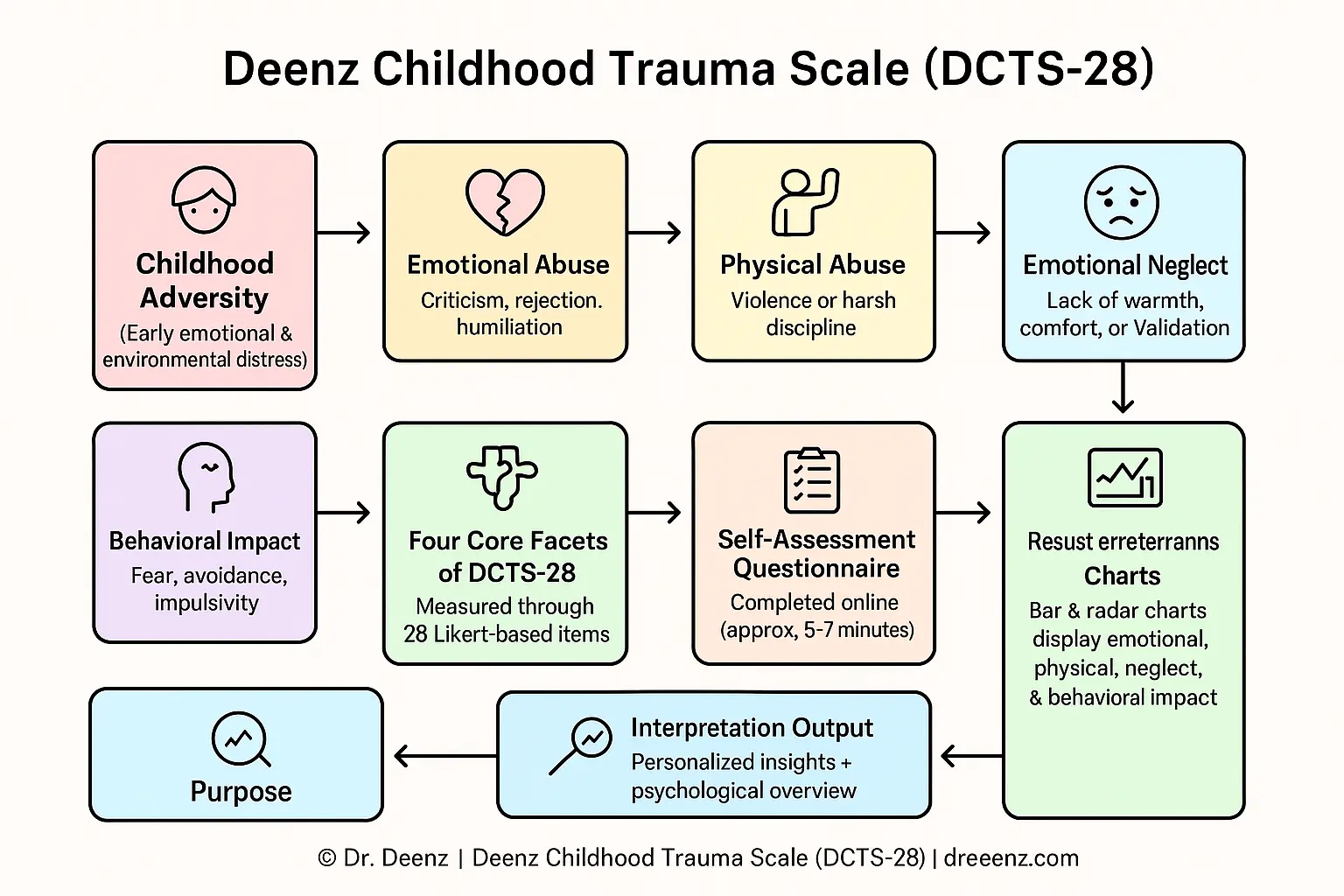This quiz is digital adaptation of Deenz Childhood Trauma Scale (DCTS-28). [1] Your participation in this test is anonymous. We do not ask or collect your personal information, nor do we store your results.
Development of Childhood Trauma Scale.
Exposure to childhood trauma is linked with a psychological impact on individuals’ overall well-being. [2] Not everyone who might have experienced childhood traumatic events may develop a mental health condition. Not everyone who might have experienced childhood traumatic events may develop a mental health condition. However, it may have somewhat impacted the individual’s cognitive, social, and personal life to some degree.
Over the years, psychologists have strived to study the childhood experience and its impact on overall wellbeing. The need for a advanced tools for measuring past experiences has also been recognized. [3] One of the popular traditional self-assessment scale is the Childhood Trauma Questionnaire (CTQ) and ACES (Adverse Childhood Experiences Scale). CTQ is a 70-item self-assessment questionnaire developed by Bernstein in 1994, tries to measure various subscales of childhood trauma.
Deenz Childhood Trauma Scale (DCTS-28) is a modern and brief self-assessment questionnaire designed to measure adverse childhood trauma on spectrum. The scale tries to assess childhood trauma by multidimensional approach, the key facets which this scale measures are Emotional abuse, physical abuse, emotional neglect, and behavioral impact.
The main goal of development of the DCTS-28 scale is to measure childhood trauma and its impact on psychological and overall well-being of an individual. In a study, in which 240 college students, 97 female and 143 male students participated it was found that the scale is a valid and reliable measure for measuring trauma experiences and the impact on overall wellbeing. Validity was supported by significant correlations with established measures of childhood trauma, including the Childhood Trauma Questionnaire (CTQ) and the Adverse Childhood Experiences (ACE) questionnaire.

We have strived to make this interactive version ( childhood trauma test) accurate and reliable for self-screening. However online quizzes and tests including this childhood trauma test are not considered accurate. This quiz has proven to be beneficial for understanding the impact and exposure to childhood traumatic events, but you should note that this computerized quiz in intended for educational purposes only. If you have any feedback, suggestion please contact me or any query related to the use of this self-assessment please consult our terms of use
References
- Dar, D. M. (2024). Introducing the Deenz Childhood Trauma Scale (DCTS-28): Validating a Comprehensive Measure for Assessing Childhood Trauma Experiences. PsychArchives. https://doi.org/10.23668/psycharchives.14225 ↩
- Terr, Lenore C. “Childhood traumas: An outline and overview.” Focus 1.3 (2003): 322-334. https://doi.org/10.1176/foc.1.3.322 ↩
- Danese, A. (2020). Annual Research Review: Rethinking childhood trauma-new research directions for measurement, study design and analytical strategies. Journal of Child Psychology and Psychiatry, 61(3), 236-250. https://doi.org/10.1111/jcpp.13160 ↩